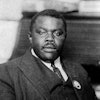Jimmy Carter’s experiences as a peanut farmer and up-and-coming politician from southern Georgia in the 1950s and 1960s familiarized the former president with the racist views many White southerners had of African-Americans. Invoking those personal experiences last month, Carter said South Carolina Congressman Joe Wilson’s outburst during President Barack Obama’s health care speech to Congress was rooted in racism. Carter’s remarks highlighted the role he believes racism plays in the intense criticism the Obama administration receives from opponents.
“There is an inherent feeling among many in this country that an African-American should not be president,” Carter told attendees at a town-hall public meeting at the Carter Center in Atlanta.
Like Carter, many Americans have grown alarmed with certain elements of the Obama opposition, such as the “birther” movement, whose adherents don’t believe the president is an American citizen; the so-called “tea party” protests; the protests at town-hall meetings and the onslaught of divisive statements from conservative talk show hosts and from Americans equating Obama to Hitler. With conservatives arguing that bringing up racism is an attempt to silence opposition to the president’s leadership, Carter’s foray into the racial discourse around Obama renewed scrutiny of the extreme elements and lack of civility that have characterized some of the public criticism the president has received.
“What I took President Carter to say, which I think ought to be unobjectionable, is that President Obama is being dealt with by some people in the American public differently because he is Black than he would if he were White,” says Dr. Russell Riley, chair of the Presidential Oral History Program at the University of Virginia’s Miller Center for Public Affairs. “That doesn’t mean that everybody who has complaints about President Obama is motivated by racism.”
Many scholars such as Riley are considering how race is shaping American public perceptions and responses to the Obama presidency. Obama’s ascension as the nation’s first African-American president also has scholars watching closely whether Americans can constructively bring race into public policy debates and development. It’s anticipated that immigration and criminal justice reform proposals will thrust race far more prominently in the spotlight than has the health care policy debate.
“Any time you get into a situation where you’re talking about race in America it sets off all kinds of alarms. It’s a very delicate issue to talk about,” Riley says.
Dr. Matthew Beckmann, assistant professor of political science at the University of California-Irvine, says it’s critical to assess Obama within the historical context of those presidents who sought to implement far-reaching policy goals. Analyzing the protests over his leadership is complicated because it’s “difficult to disentangle sincere policy disagreements from those motivated by President Obama’s race,” he says.
“The upshot is that when it comes to opponents’ reactions to President Obama and his agenda, policy disagreements are surely playing a huge role, race is probably playing some role, but it is virtually impossible to know precisely how much weight to assign to each,” Beckmann says.
Scholars note that historically Americans have long waged raucous protests over presidential leadership and policies. With “the attention these outbursts have received, the notion that they are unprecedented is mistaken,” Beckmann says.
Dr. Carl L. Bankston, chair of the sociology department sociologist at Tulane University, says 21st century Americans might consider the Obama protests unsettling because they were either not born yet or are not old enough to recall the 1960s when the civil rights movement and Vietnam War unfolded. But a lack of decorum characterized public political debate in the U.S. long before the 1960s, Bankston explains.
The current discourse “is something that’s troubling. It is not the first time in American history that public debates have been acrimonious and have lacked civility. Certainly, early in this nation’s history that was almost a characteristic of political debate — the name-calling and objectionable discourse,” Bankston says.
Bankston says the attacks against liberal policymaking dates to former President Lyndon B. Johnson’s Great Society initiative, when many Americans linked federal government growth with policies to address racial inequalities.
“The big expansion of government that began with the Great Society, in part, included attempts to redress racial inequalities. And so race and the expansion of the federal government have become issues associated together. They are not the same thing but they have become historically linked,” Bankston says.
Obama’s victorious presidential campaign surprised many scholars and it has propelled dozens if not hundreds of political scientists and other scholars to examine his campaign and presidency.
Dr. Joe Feagin, the Ella C. McFadden Professor of Liberal Arts at Texas A&M University, says scholars who typically don’t examine race in American politics but study the U.S. presidency and its history will have to grapple with the subject to effectively interpret the Obama presidency. Feagin, a celebrated sociologist and social theorist, co-authored Yes We Can? White Racial Framing and the 2008 Presidential Campaign.
“Race is too big of an issue. It’s literally exploding, especially with the Glenn Beck ‘Obama hates White people’ statement. …That reverberated all over the place,” Feagin says. “I don’t think scholars are going to be able to duck this. And it’s probably going to get worse with issues, such as immigration reform, on the horizon.”



















